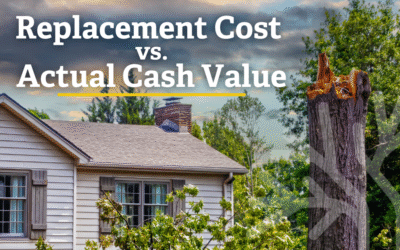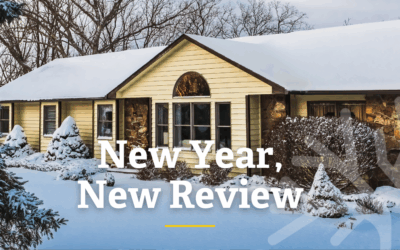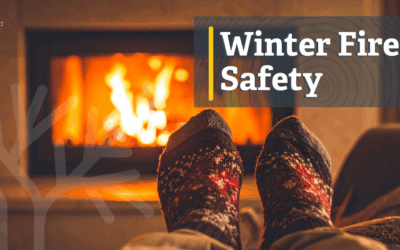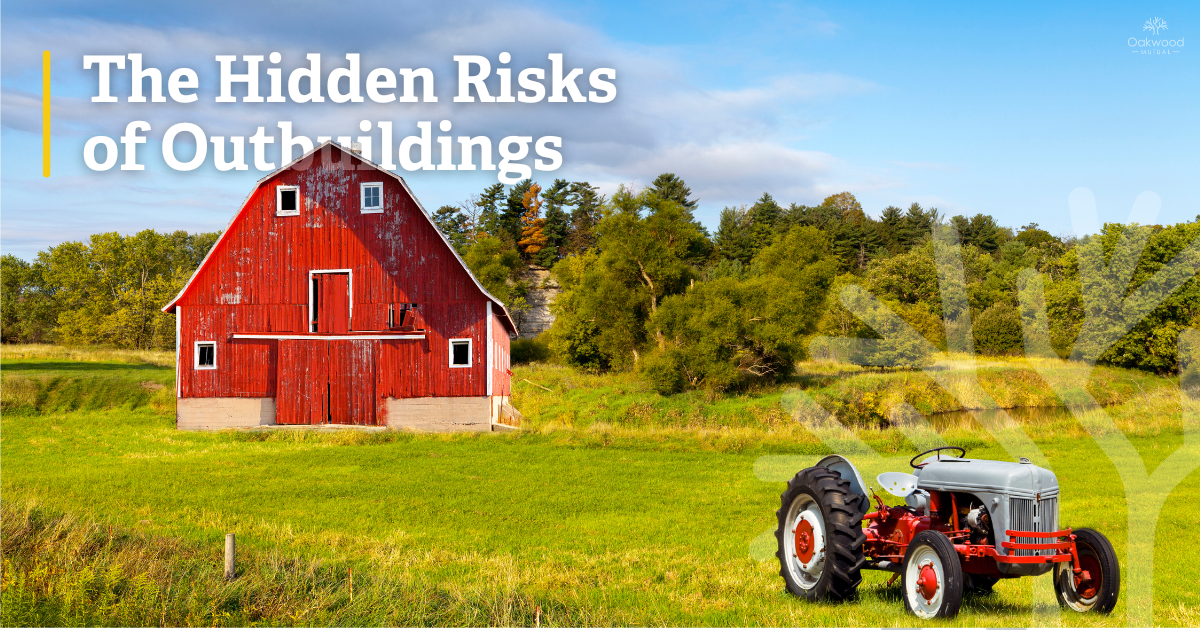 The Hidden Risks of Outbuildings
The Hidden Risks of Outbuildings
When most people think about home or farm insurance, they picture their main dwelling: the house itself. But across Indiana, many properties include detached garages, barns, pole buildings, and other outbuildings that hold significant value. Whether you’re storing tractors, tools, hay, or heirlooms, overlooking these structures can lead to major gaps in your insurance coverage.
At Oakwood Mutual, we understand rural life because we’re rooted in it. From small towns to sprawling homesteads, our policyholders rely on outbuildings every day, and they deserve to be protected.
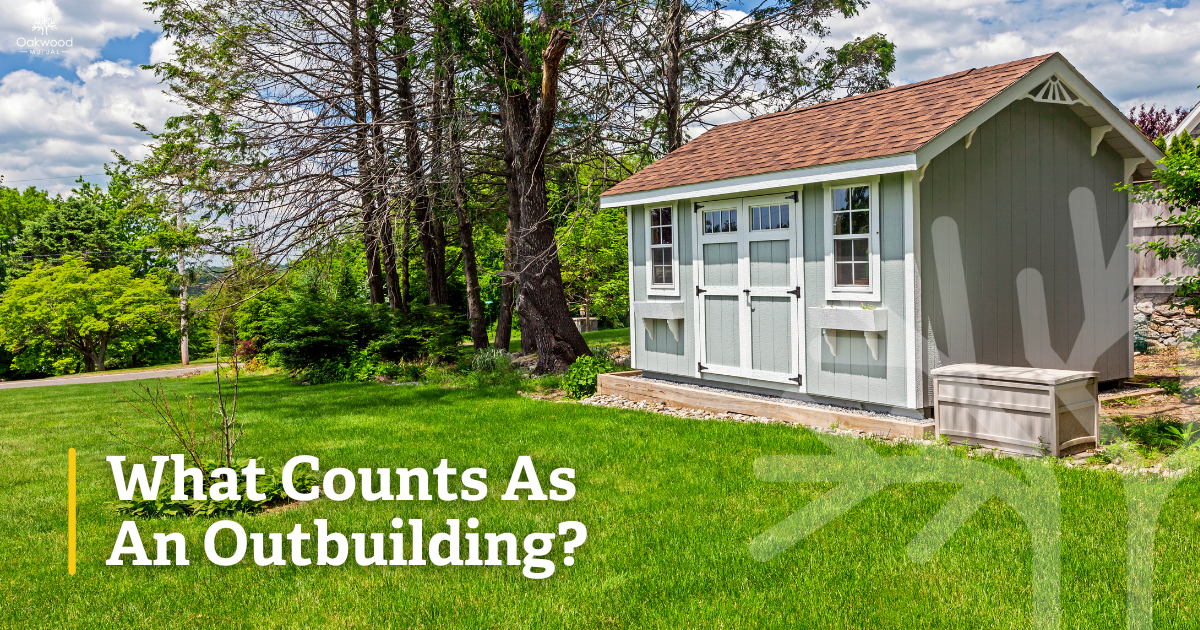 What Counts as an Outbuilding?
What Counts as an Outbuilding?
Outbuildings, also known as “other structures,” refer to any freestanding buildings on your property that are not attached to your main residence. Common examples in Indiana include:
- Pole barns
- Detached garages
- Machine sheds
- Storage sheds
- Grain bins
- Horse stables or livestock barns
- Detached workshops or guesthouses
In many insurance policies, outbuildings are included under a general “other structures” clause, often capped at 10% of the coverage on your main home. So, if your home is insured for $300,000, you may only have $30,000 in outbuilding coverage, no matter how many structures you have or what they’re worth.
This is why a personalized policy review is essential. Oakwood’s insurance review process helps make sure every corner of your property, including your secondary structures, is properly protected.
Risks You Might Not See Coming
While outbuildings provide convenience and functionality, they also come with unique risks that differ from your primary residence. Some of these risks are obvious, but others may catch homeowners off guard.
- Weather-Related Damage
Indiana’s weather is no joke. Hail, wind, and lightning can cause serious damage to roofs, siding, and even entire structures. Just like your home, outbuildings need storm-resistant materials and regular inspections. Read more about protecting your property in our Spring Storms blog, which emphasizes preparing for sudden weather events.
- Animal Intrusion and Wildlife Damage
Unsealed barns, sheds, and garages are attractive to raccoons, birds, and rodents. These critters can cause significant damage to insulation, chew through wiring, or nest in dangerous places. Our recent video series on rural risk tips highlights how easily pests can get in—and what it costs when they do.
- Fire Hazards
Hay, fuel, welding tools, and propane tanks—common contents in rural outbuildings—create a heightened fire risk. Unlike homes, these structures may not have smoke detectors or fire suppression systems. A small spark can result in a devastating loss.
- Theft and Vandalism
Outbuildings are often located farther from the main home and not always well-lit or secured, making them easier targets. Equipment like lawnmowers, ATVs, and tools can be costly to replace, and they may not be covered if your policy limits are too low.
- Structural Collapse
Older barns or sheds that haven’t been maintained may be vulnerable to collapse from heavy snow loads or strong winds. Damage like this may not be covered if it’s deemed to be the result of neglect.
Coverage Gaps You Should Know About
Even if your policy includes “other structures” coverage, you might be underinsured. Here’s why:
- Many policies cover outbuildings at actual cash value, not replacement cost
- Contents inside may not be fully protected under standard personal property limits
- Equipment used for business or farming may require separate scheduling or endorsements
For instance, if your pole barn houses $25,000 in farm equipment, but your policy only covers $5,000 in outbuilding contents, you could be left with a major shortfall.
Our Farm Equipment Insurance blog breaks down how to insure your tools and machinery properly, especially if they’re stored in secondary structures.
It’s What’s Inside That Counts
Coverage doesn’t just apply to the building itself. You also need to consider:
- Farm equipment and tools
- Hay or feed
- Livestock supplies
- Household storage or valuables
Many people assume that everything on their property is covered under one umbrella, but that’s rarely the case. Coverage for the contents of outbuildings is often limited or excluded unless you’ve scheduled them or adjusted your policy.
Scheduling high-value equipment separately helps ensure you’re covered for the full replacement cost, not just a depreciated amount.
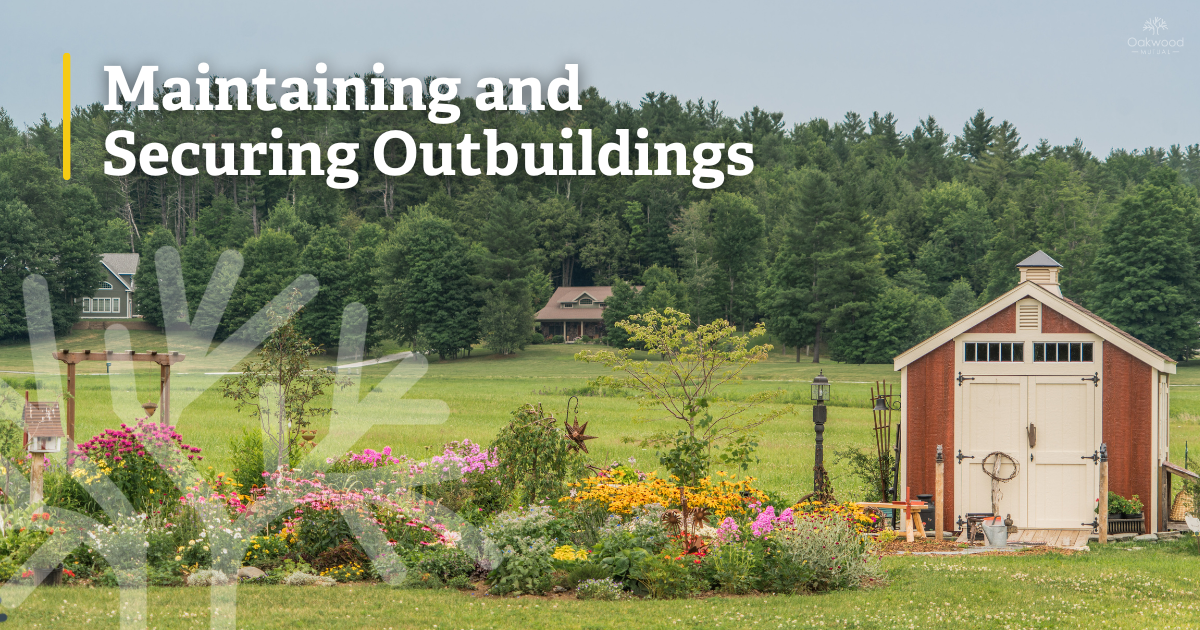 Maintaining and Securing Outbuildings
Maintaining and Securing Outbuildings
Insurance isn’t the only line of defense. You also need maintenance and preventative action. Here are smart steps to take:
- Inspect roofs, siding, and doors seasonally
- Add security lighting and locks to all outbuildings
- Install smoke and carbon monoxide detectors where appropriate
- Use fire-resistant materials if rebuilding or repairing
- Keep address markers visible and clear of overgrowth
 What to Ask Your Agent
What to Ask Your Agent
Many homeowners don’t realize their gaps in coverage until it’s too late. That’s why it’s so important to talk to your Oakwood Mutual agent. Here’s what to ask:
- What is my current “other structures” limit?
- Are my barns or outbuildings covered for replacement cost or cash value?
- Do I need to schedule any tools or equipment separately?
- Are outbuilding contents covered—and up to what amount?
- Is there a better policy structure for my rural property?
Your agent can walk you through these questions and make updates based on how you use your outbuildings. If you’re unsure who to contact, use our Find an Agent tool to get started.
Don’t Leave Outbuildings Out
From barns and sheds to garages and machine shops, outbuildings are essential and insuring them correctly is too. Whether you’re a homeowner with a detached garage or a farmer with multiple structures across your property, it pays to evaluate your coverage before a disaster strikes.
Take the time to:
- Review your outbuilding limits
- Inventory what you store
- Maintain your structures seasonally
- Ask your Oakwood agent the right questions
A little attention now can save you thousands later. And with Oakwood Mutual by your side, you’re not just insuring buildings, you’re protecting the roots of your rural life.
